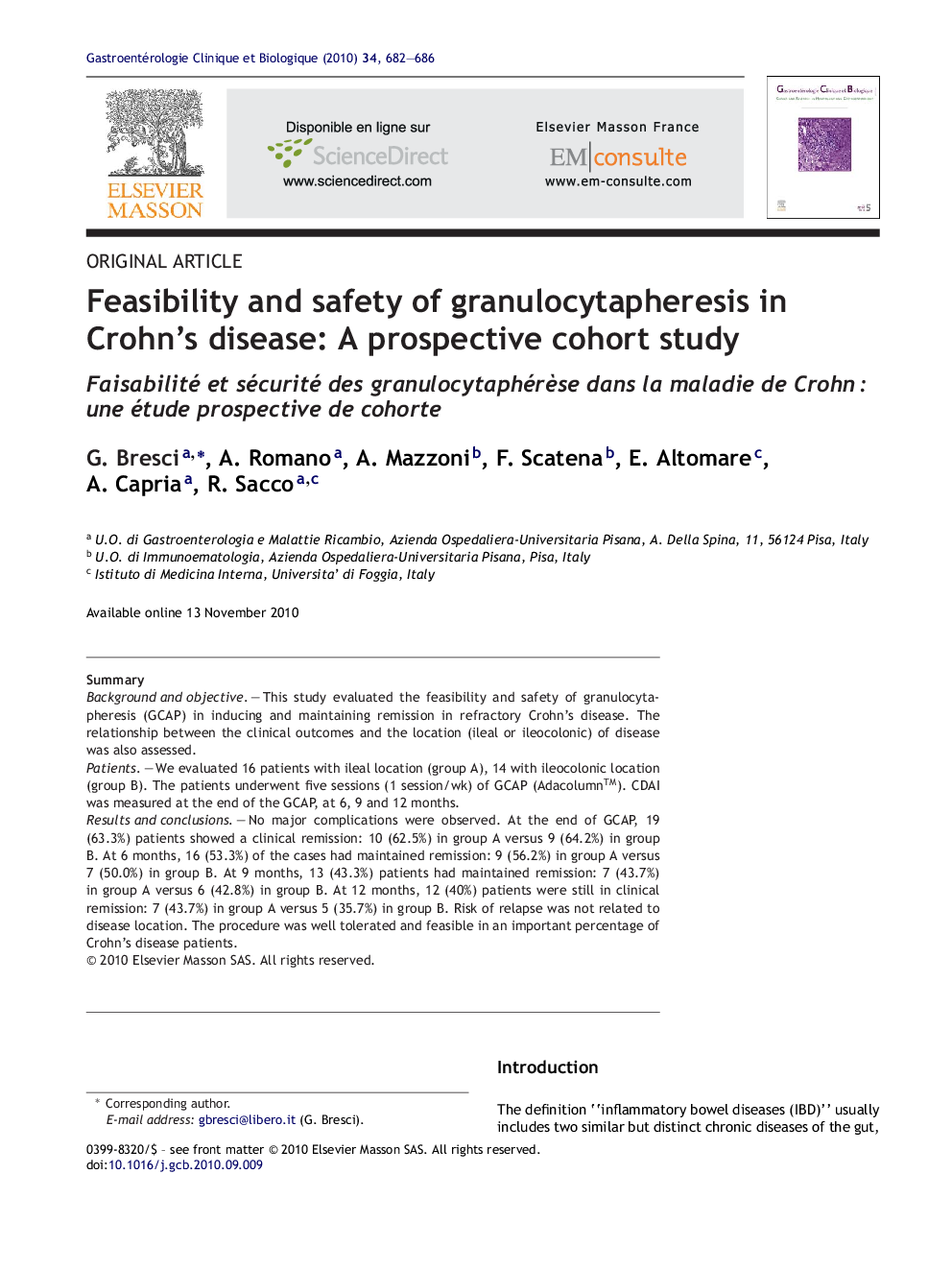| Article ID | Journal | Published Year | Pages | File Type |
|---|---|---|---|---|
| 3290082 | Gastroentérologie Clinique et Biologique | 2010 | 5 Pages |
SummaryBackground and objectiveThis study evaluated the feasibility and safety of granulocytapheresis (GCAP) in inducing and maintaining remission in refractory Crohn's disease. The relationship between the clinical outcomes and the location (ileal or ileocolonic) of disease was also assessed.PatientsWe evaluated 16 patients with ileal location (group A), 14 with ileocolonic location (group B). The patients underwent five sessions (1 session/wk) of GCAP (AdacolumnTM). CDAI was measured at the end of the GCAP, at 6, 9 and 12 months.Results and conclusionsNo major complications were observed. At the end of GCAP, 19 (63.3%) patients showed a clinical remission: 10 (62.5%) in group A versus 9 (64.2%) in group B. At 6 months, 16 (53.3%) of the cases had maintained remission: 9 (56.2%) in group A versus 7 (50.0%) in group B. At 9 months, 13 (43.3%) patients had maintained remission: 7 (43.7%) in group A versus 6 (42.8%) in group B. At 12 months, 12 (40%) patients were still in clinical remission: 7 (43.7%) in group A versus 5 (35.7%) in group B. Risk of relapse was not related to disease location. The procedure was well tolerated and feasible in an important percentage of Crohn's disease patients.
